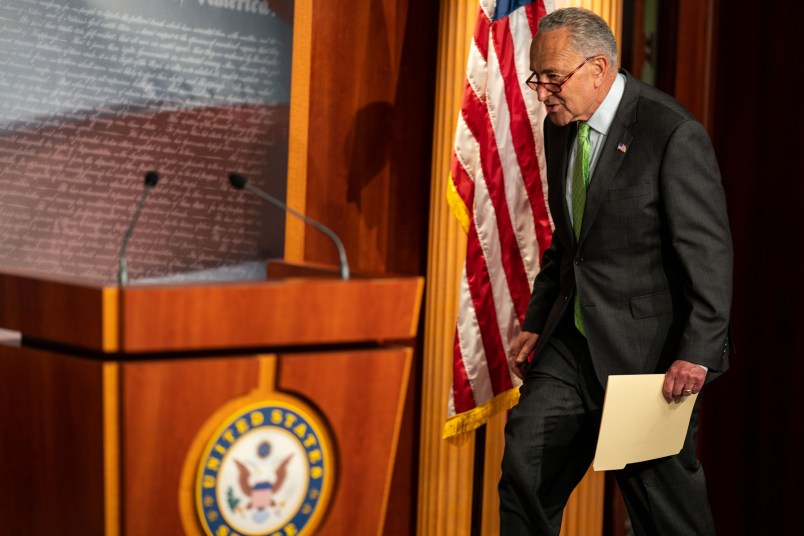Over the past 30 years, Congress has enacted roughly three major tax hikes.
There’s the 1990 tax hike, the infamous breaking of George H. W. Bush’s “read my lips” promise, Bill Clinton’s 1993 increase, and ACA-associated hikes passed under Barack Obama.
Democrats now are eying proposals, however, which contain elements that go beyond any of those last three. While the corporate tax rate, even in Biden’s plan, would not return to the pre-Trump tax cut level, Biden has asked Congress to consider changes to capital gains taxation that would impose the tax upon the transfer of assets at death, and which would bring capital gains tax rates in line with income taxes.
Coupled with additional moves to beef up IRS enforcement and mandates for more information reporting to the tax authorities, the policies could constitute the biggest increases on wealthy individual taxpayers in generations; an opportunity for progressives to implement a chunk of their vision for economic justice that’s unlikely to return anytime soon.
“This is a rare opportunity – you don’t get these trifectas very often, particularly timed with a crisis and public support to do big things in response,” Chuck Marr, senior director of federal tax policy at the Center on Budget and Policy Priorities, told TPM. “So the stars are aligned – support from support groups, the public, and Dems in power, but those are very tight margins, so there’s no room for error.”
As it stands, Biden asked Congress to raise the corporate tax rate to 28 percent from its current rate of 21 percent. Congress appears to be headed towards a compromise number of 25 percent, a far cry from the pre-Trump corporate tax rate of 35 percent.
But it’s the capital gains changes that constitute both the most contentious part of the package and potentially the biggest new money pot with which Democrats can partly finance climate change measures and social safety net expansions in the reconciliation bill.
“In my 30 years of experience, we have not seen real tax increases. We’ve seen a huge bunch of artificial stuff go on,” Steve Rosenthal, a senior fellow in the Urban-Brookings Tax Policy Center, told TPM.
He described the capital gains proposal – which would tax gains in asset value at death – as the “most integral” to Biden’s plans, in part because, when coupled with increases in capital gains rates, there would no longer be an incentive to hold stocks until death, at which point heirs would enjoy the tax-free receipt of higher-value assets.
That’s a proposal which has already ginned up opposition, in part by critics who use the example of family farms – an asset whose transfer to heirs would be taxed under the proposal – to oppose the move.
Former Sen. Heidi Heitkamp (D-ND), who, The American Prospect found, once described the lack of capital gains taxation upon death as “one of the biggest scams in the history of forever,” now leads a non-profit that opposes the move. Former Sen. Max Baucus (D-MT) said in a Wall Street Journal column that the proposal would “devastate family-owned businesses, ranches and farms.”
That criticism has led to some potential changes in the package. One option that the Senate Finance Committee is considering would carve out a $25 million exemption for family farms.
“I think passing that would make obvious that the family farm and small business, family-owned small biz, are stalking horses to protect billionaires,” Rosenthal said. “There’s a very well-financed campaign with very attractive slogans, and it’s hard to counter.”
It remains unclear how elected Dems will respond.
But to Marr, the fact that this debate is taking place suggests broader progress. He argued that the overwhelming unpopularity of the 2017 Trump tax cuts had changed how elected Dems view the politics around taxes.
“Here you have Republicans giving away $2 trillion, and it was very unpopular,” Marr told TPM. “It’s natural that congress is going to nip and tuck and make changes, but now is crunch time, and we don’t want the package to be shrunk.”



